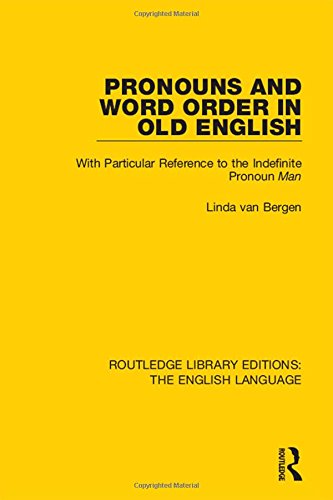

Most ebook files are in PDF format, so you can easily read them using various software such as Foxit Reader or directly on the Google Chrome browser.
Some ebook files are released by publishers in other formats such as .awz, .mobi, .epub, .fb2, etc. You may need to install specific software to read these formats on mobile/PC, such as Calibre.
Please read the tutorial at this link: https://ebookbell.com/faq
We offer FREE conversion to the popular formats you request; however, this may take some time. Therefore, right after payment, please email us, and we will try to provide the service as quickly as possible.
For some exceptional file formats or broken links (if any), please refrain from opening any disputes. Instead, email us first, and we will try to assist within a maximum of 6 hours.
EbookBell Team

4.3
38 reviewsFirst published in 2003, this is a study of the syntactic behaviour of personal pronoun subjects and the indefinite pronoun man, in Old English. It focuses on differences in word order as compared to full noun phrases. In generative work on Old English, noun phrases have usually divided into two categories: 'nominal' and 'pronominal'. The latter category has typically been restricted to personal pronouns, but despite striking similarities to the behaviour of nominals there has been good reason to believe that man should be grouped with personal pronouns. This book explores investigations carried out in conjunction with the aid of the Toronto Corpus, which confirmed this hypothesis.